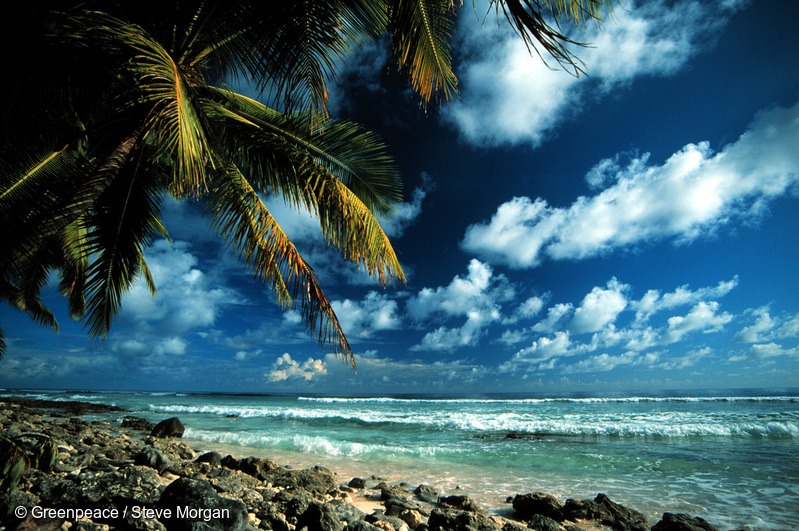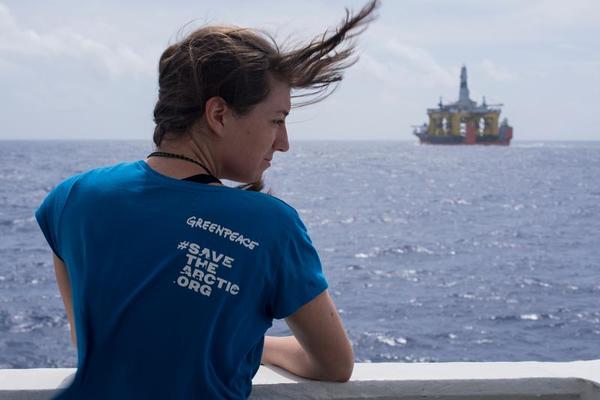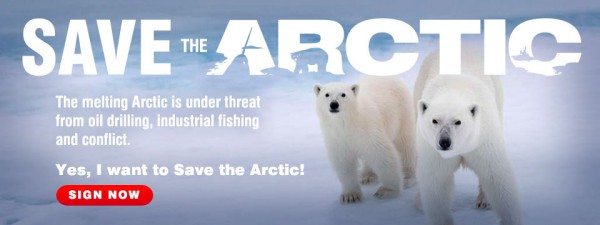We have just seen the destruction caused by violent cyclone in Vanuatu. This is what climate change will bring us: storm surge, sea-level rise, polluted water supplies, and more extreme weather events such as droughts and tropical cyclones.
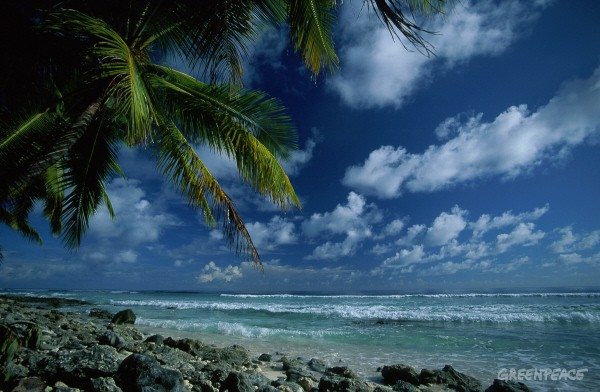
. Like Vanuatu, the Marshall Islands is particularly vulnerable to climate change. This is a drowning nation.
The International Panel on Climate Change (IPCC) makes clear the extreme vulnerability of the Marshall Islands, pointing out that some Pacific atolls have recorded sea level rises 3 times the global average. Earlier IPCC reports pointed out that a 30-50 cm sea-level rise projected by 2050 would threaten low islands (like Republic of the Marshall Islands), and that a 1 m rise by 2100 ‘would render some island countries uninhabitable’.
No wonder that RMI has taken a strong role in international negotiations to stop climate change. Foreign Minister Tony de Brum is a leading advocate for strong international action on climate change. There is even an important climate declaration named after the capital of RMI. The “Majuro Declaration” is a strong statement from the leaders of the Pacific Islands Forum on the need for urgent action. Tony de Brum has been a strong moral voice calling big polluting nations to reduce the burning of fossil fuels that cause climate change.
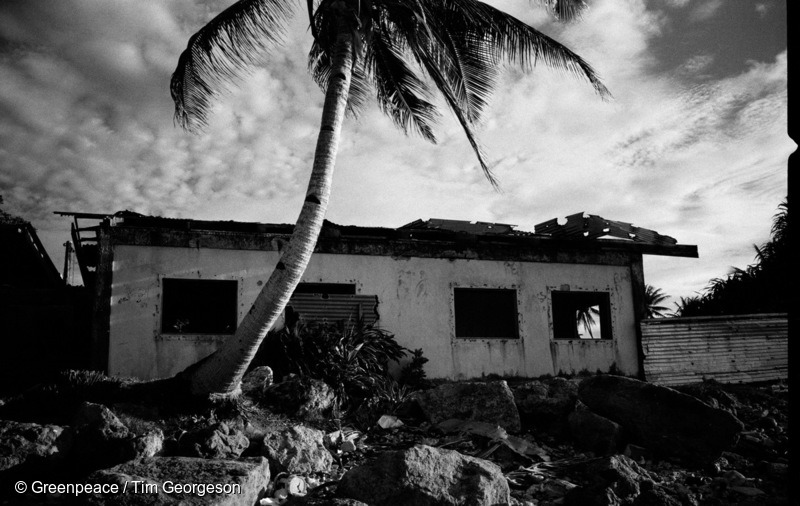
Abandoned houses line the coastline of Rita in Majuro where families have been forced to leave because of rising tides. This is causing a new phenomenon of environmental refugees due to climate change. Throughout the Marshall Islands the land lies only inches above sea level. Rising sea levels pose a very high risk to the communities in the region. Families are already being evacuated from their houses due to erosion and salination of agricultural land and wells.
In the light of the existential threat of climate change to the Marshall Islands, it is surprising to learn that oil companies around the world are flying the flag of the Marshall Islands while extracting more oil to warm the planet. The Marshall Islands shipping registry is widely used by offshore oil industry. Just last September the registry sent out a press release titled ‘the Republic of the Marshall Islands is Offshore Flag of Choice’. A total of 183 drill ships and drill platforms sail under Marshall Islands flag, which is a substantial number compared to other registries.
One particular direction where oil rigs sailing under the flag of the Marshall Islands have been active is in the Arctic. As climate change warms the planet, the northern glaciers, ice caps, and sea ice are melting rapidly. This year we have witnessed the lowest amount of winter sea ice in the history of measurement. This is the ultimate warning for humankind to finally act on climate change. Unfortunately, for oil companies the melting Arctic is a business opportunity. Oil companies like Shell, Exxon, Chevron, ENI, and Norwegian Statoil want to pump ever more oil to warm the planet.
Right now there is an oil rig flying the flag of Marshall Islands heading towards Alaska, US to start Arctic exploratory drilling. Shell has rented an RMI-flagged rig called Polar Pioneer for 2015. Last year another oil rig under the Marshall Islands flag (Transocean Spitsbergen) drilled in Arctic Barents Sea.
The influential science journal Nature published an article earlier this year that specified and quantified the regions of the world where the oil, gas and coal must stay in the ground if we are to avoid dangerous climate change. The article concludes that ‘all Arctic resources should be classified as unburnable’. Going for Arctic oil means that we have no chance to keep climate change on levels that won’t drown Marshall Islands.
So while demanding action on international forums, the Marshall Islands should act also at home. RMI should not provide cheap shelter for oil drillers of the world under its flag of convenience. Oil drillers should be deflagged to save ourselves.
But to make the story even weirder: this is not all. The registry is providing Marshall Islands government with only minute income. The contribution was $1million a year for 10 long years (1995 – 2005) and doubled to $2million for five years (2005 – 2009) and incrementally increased since 2010 to $5million. The similar sized Liberian ship registry generates about $20m to the Liberian government.
The Marshall Islands shipping registry is the third largest in the world, with over 2000 vessels. Although the Trust Company of the Marshall Islands (TCMI) is based in the Marshall Islands, in practice the operation is run by International Registries Inc (IRI) based in Reston, Virginia, United States.
To be clear: a US-based company is making money operating the Marshall Islands shipping registry that is used to promote and conduct drilling operations in the Arctic and other seas of the world. These actions will drown RMI. Climate action starts at home, so if RMI is serious about stopping climate change, we need to get oil rigs and drill ships out of the RMI Shipping Registry. Now.

